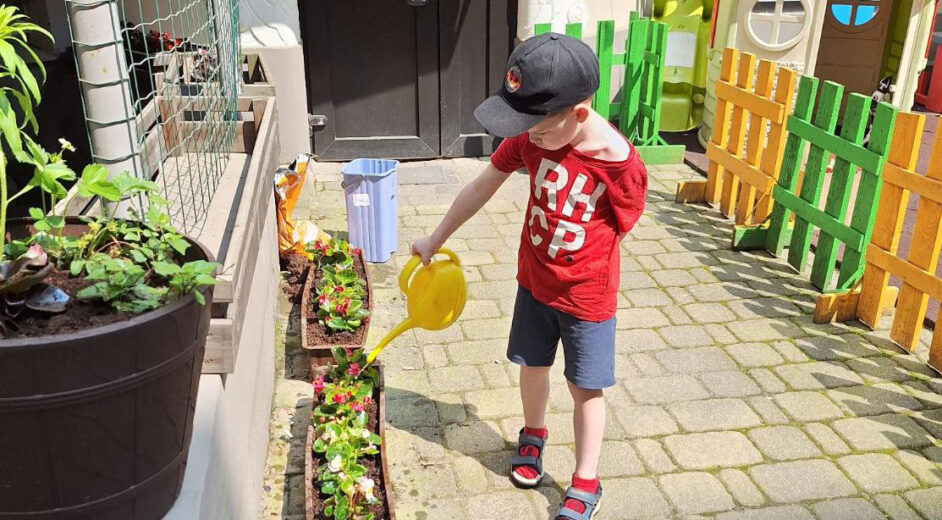Kindergartens have become much more sustainable
Nature has been given greater importance in children’s play and learning, and everyday life has become far more sustainable. For the more than 20 kindergartens that won the Nordplus Junior Award 2025, their project has led to lasting changes and a stronger focus on STEAM skills.
By Joan Rask, journalist
They didn’t even sort the rubbish! Can you imagine that? asks Jolanta Varanaviciene, head of the Žilvitis kindergarten in Kaunas, Lithuania’s second largest city. She took over as head three years ago. Back then, none of the staff spoke much English, there was virtually no experience with international projects, many were worried about change and there was no focus at all on a green and sustainable transition.
- For me, it was really important to take the kindergarten in a new direction — with more STEAM* activities, more ecology and a greener, more sustainable way of doing things. It wasn’t easy to make those changes, which is why I set up the Nordplus project, Kids go Green, says Jolanta Varanaviciene.
Jolanta Varanaviciene brought three other partners into the project. She didn’t know any of them beforehand – she simply put a post online, and suddenly there was a flood of interested partners. One of them was Peetri Kindergarten, which welcomes nearly 400 children every day across 18 groups in Estonia’s capital, Tallinn. Riina Rosar, who has worked with children for more than 25 years, heads a staff of 36 teachers.
- We joined because we felt the topics were really relevant. We have loads of equipment – robotics and other things, including for younger children. What we wanted was not just to motivate the teachers, but to get them to actually use the equipment more, says Riina Rosar.
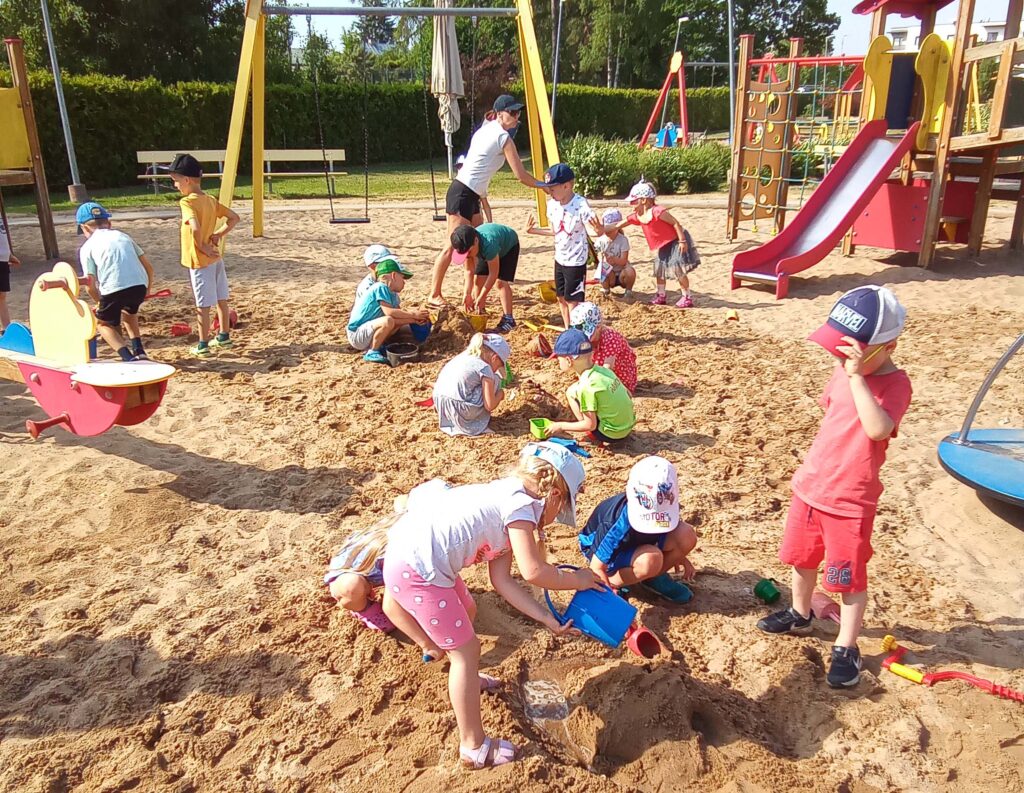
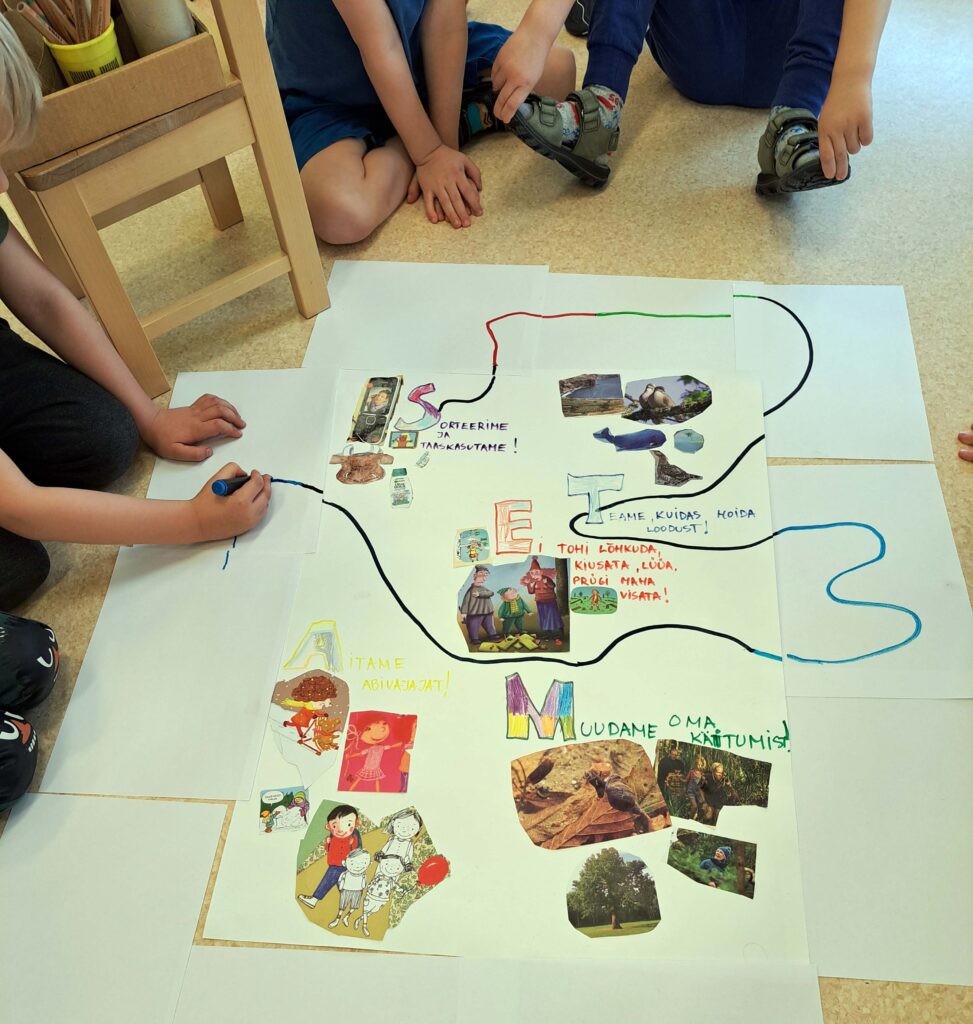
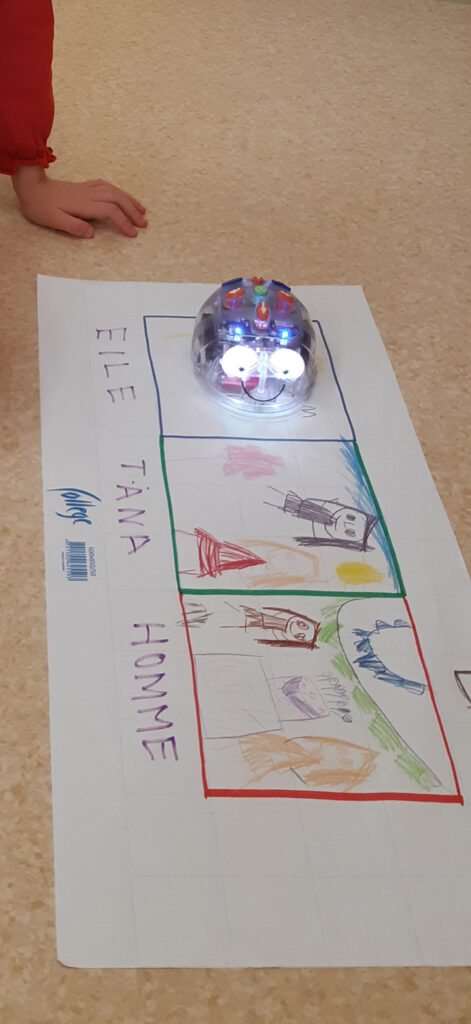
One of the key staff members at Peetri Kindergarten is Tuuli Haljaste. She is a trained teacher and has worked in early childhood education for more than 30 years, the last 10 of them at Peetri. Her specialism is technology, so she teaches the children – and her colleagues – to operate robots, do programming and work with IT products.
As part of the project, a comprehensive e-learning catalogue was developed with suggestions for games and activities that integrate STEAM competences and sustainable thinking. Riina Rosar and Tuuli Haljaste explain that it was easy to get the children engaged, because the activities were very hands-on.
- We had some big posters – actually four large sheets put together – and we laid them out on the floor. We added pictures, and then we created a track where the children could draw a line. A robot would move along it, change colours and stop at certain points. We also used a Bee-Bot – those little floor robots that children can programme with buttons, explains Tuuli Haljaste.
For the children, it turned into a game where maths and an understanding of technology were seamlessly integrated. But as the project went on, it also became clearer that there were differences.
- We have - maybe - a little bit more freedom as teachers compared with the other participating countries. It was very interesting to see how they taught and how they used the nearby nature. Unfortunately, we do not have a lot of outside playgrounds and greenhouses in Tallinn, so we got very inspired and absolutely adored their outside playgrounds, says Tuuli Haljaste.
Differences in sustainability
All three Baltic states were represented, and from Latvia the kindergarten Ābolu Maiss took part, located in the heart of the capital, Riga. Unlike the project partners in Estonia and Lithuania, this kindergarten is quite small. Around 25 children play here in a house with a small courtyard garden. Kristine Gravite is the head and co-owner of the kindergarten, which has only three to four staff members.
- It was a completely new experience for us – the idea itself was really exciting, and the Nordplus framework was attractive in its own right. It was a fantastic opportunity for us to get to know kindergartens in Lithuania and Estonia, see how they work and, at the same time, gain new knowledge and skills, she says.
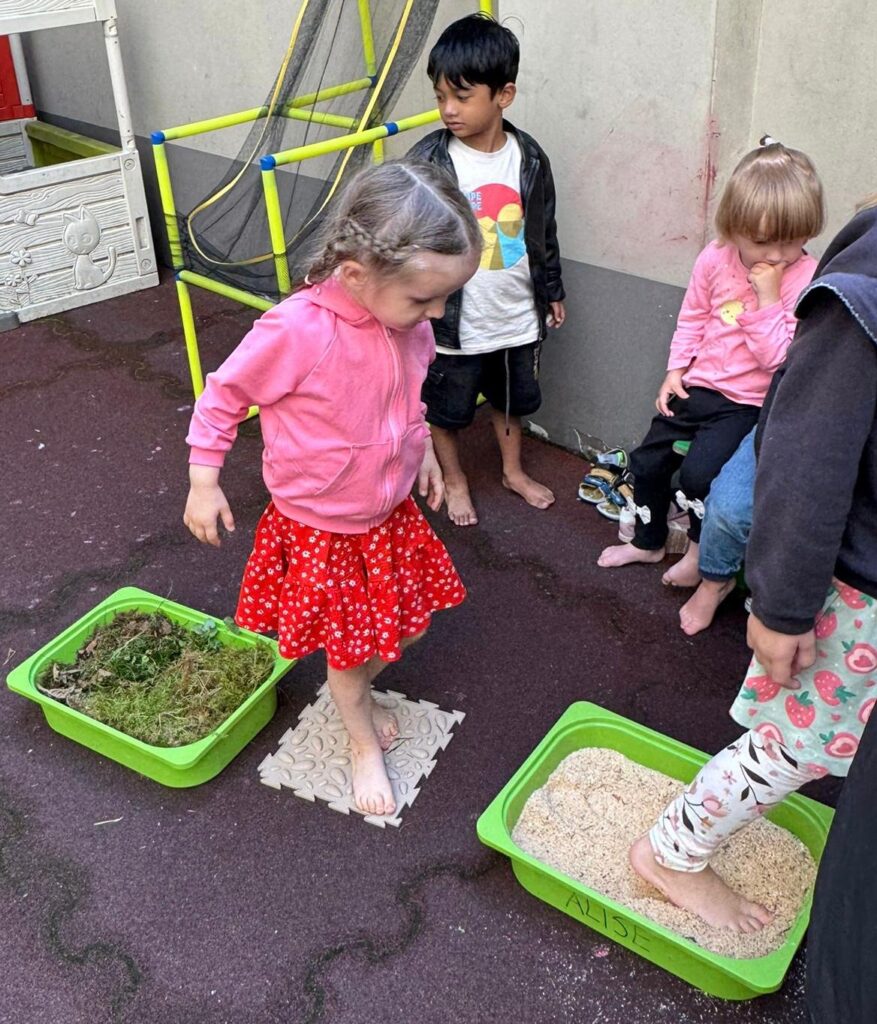
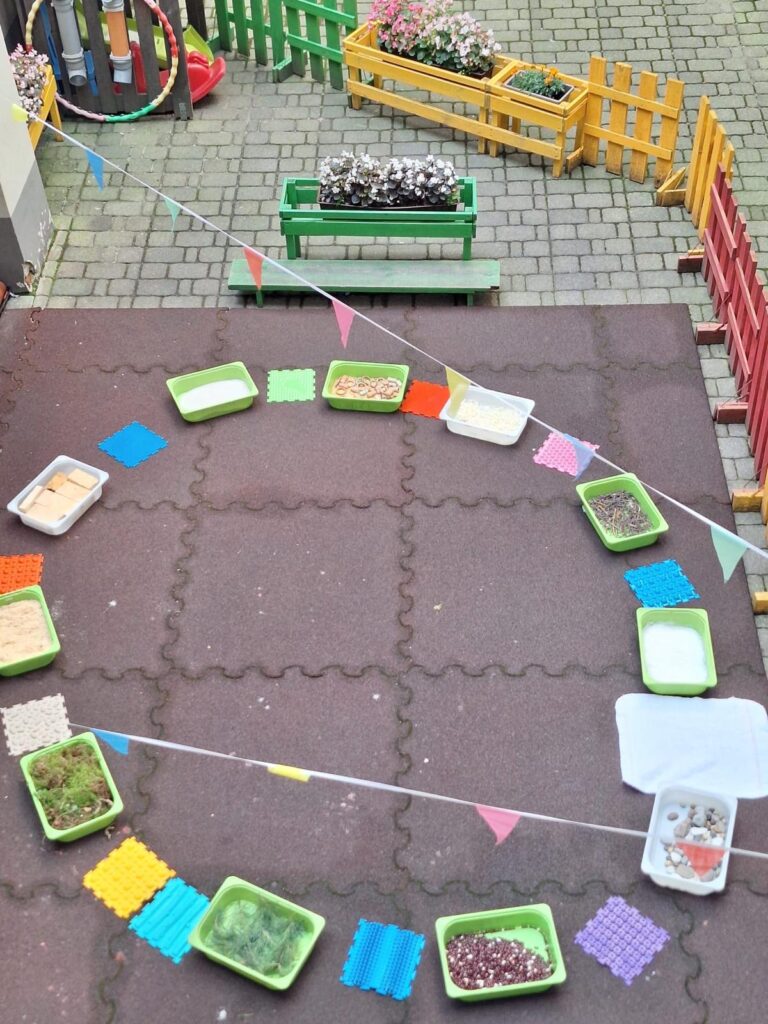
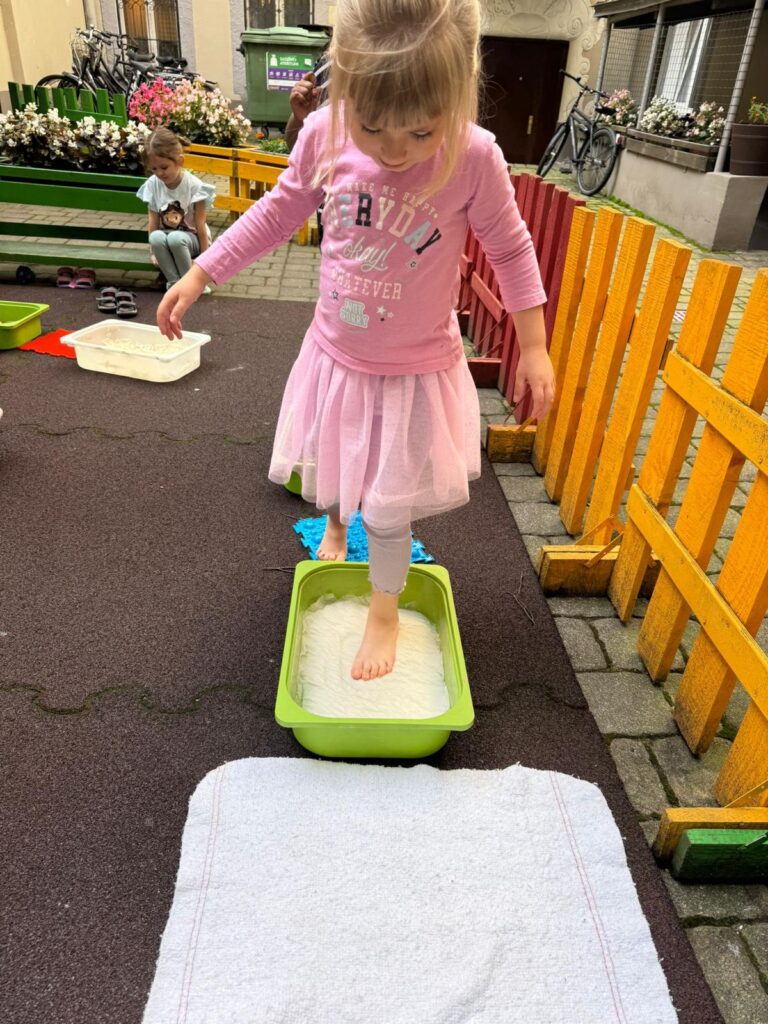
Kristine Gravite has a master’s degree in education and has worked with children her entire adult life.
- I really enjoyed our online activities, where the children joined in games and singing while seeing each other on screens. It was so clear they had prepared and were enjoying themselves, says Kristine Gravite.
The Ābolu Maiss Kindergarten already had a green profile when they started – but the project sparked fresh ways of seeing things.
- During the project, we really started to put even more emphasis on sustainability and on the nature around us. We have a small playground in the urbanised environment of Riga, and now we’ve made it as green as possible – and it is the children who take care of the plants and make our little playground greener. It’s these kinds of things that make a real difference, she explains.
From time to time they encourage the children to go barefoot and feel the stones, soil and plants underfoot – even when it’s raining. They need to experience their connection to the earth, explains Kristine Gravite. Some parents were sceptical at first, but gradually the green and sustainable approach has become something of a hallmark of the kindergarten.
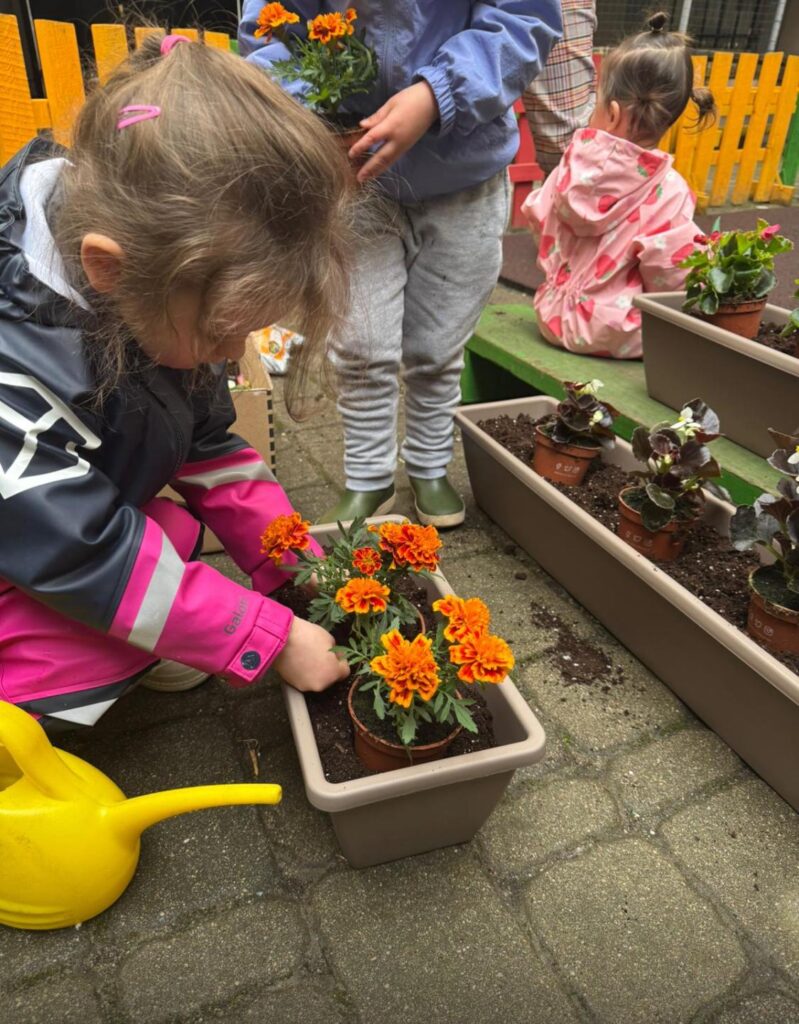
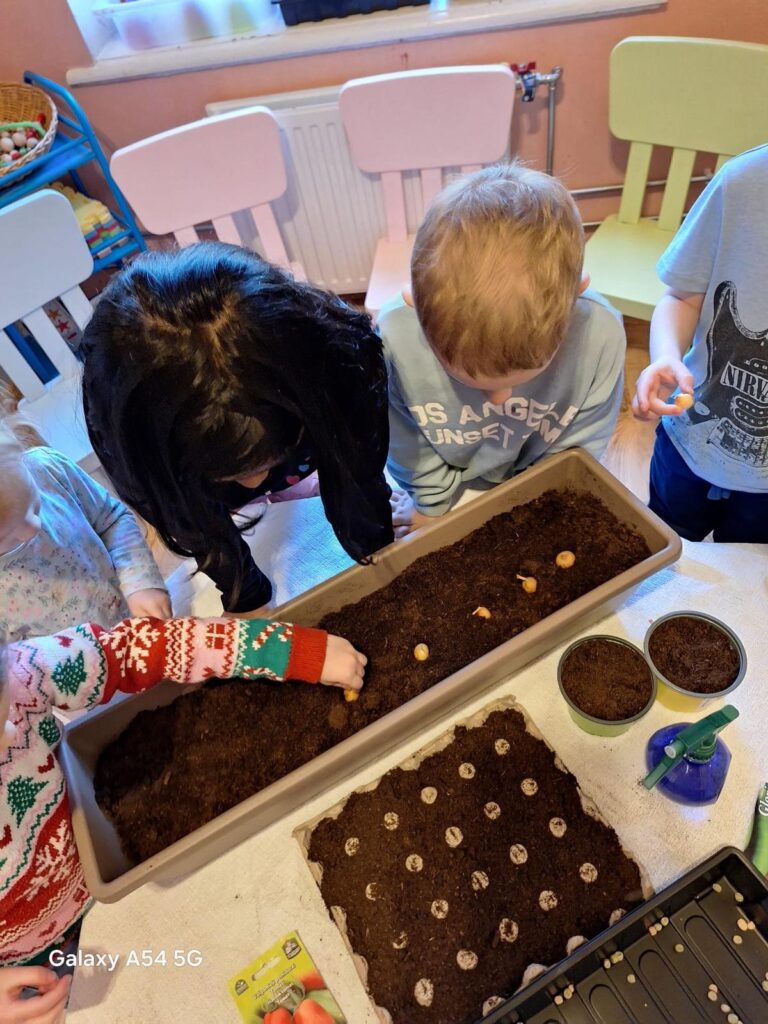
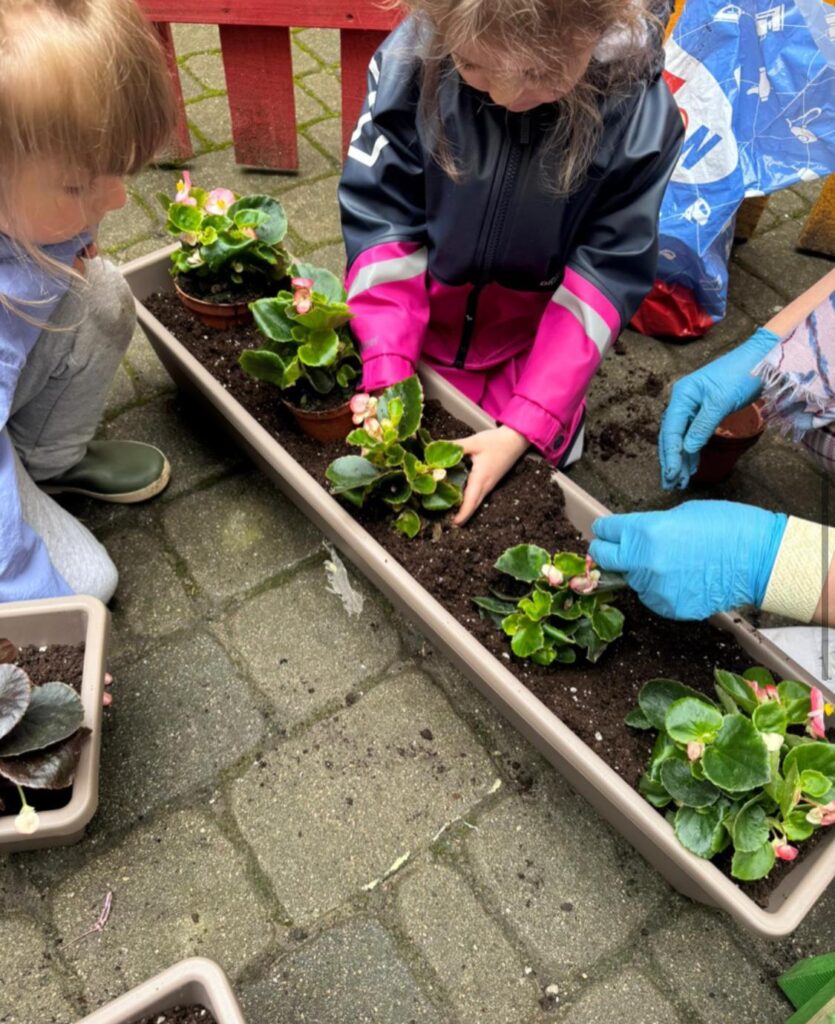
- When parents register their children, I always suggest they come and see the kindergarten first. But they often say, ‘No, no, that’s not necessary. We’ve seen how you work and we’re happy. We just want our child to be with you.’ That’s a very clear signal that we’re doing something right, she says.
Growing competences
For the woman behind the project, Jolanta Varanaviciene, it was also important to initiate a process that gave teachers the confidence to develop their own skills. This way, they could pass on to the children the joy of working with elements from STEAM, while at the same time supporting a more sustainable way of living.
- We cut down on synthetic plastic really quickly – in fact, we’ve stopped buying it altogether. Then we started sorting the rubbish and using durable materials in our everyday teaching. And we realised that learning doesn’t just happen in the classroom – it can just as easily take place outside, even in the forest next to the kindergarten. We can even teach maths outdoors! says Jolanta Varanaviciene.
Building trust among the teachers is absolutely central, she explains, and that’s why she chose to look for partners only in the neighbouring Baltic countries, which after all were a little more familiar.
- A leader can never succeed with a project or a process of change unless there are staff who take on board the idea and are ready to support you – otherwise you are alone and you cannot achieve anything, she says.
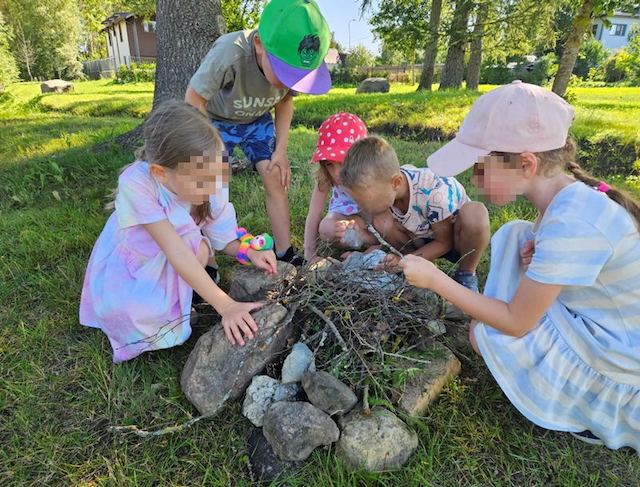
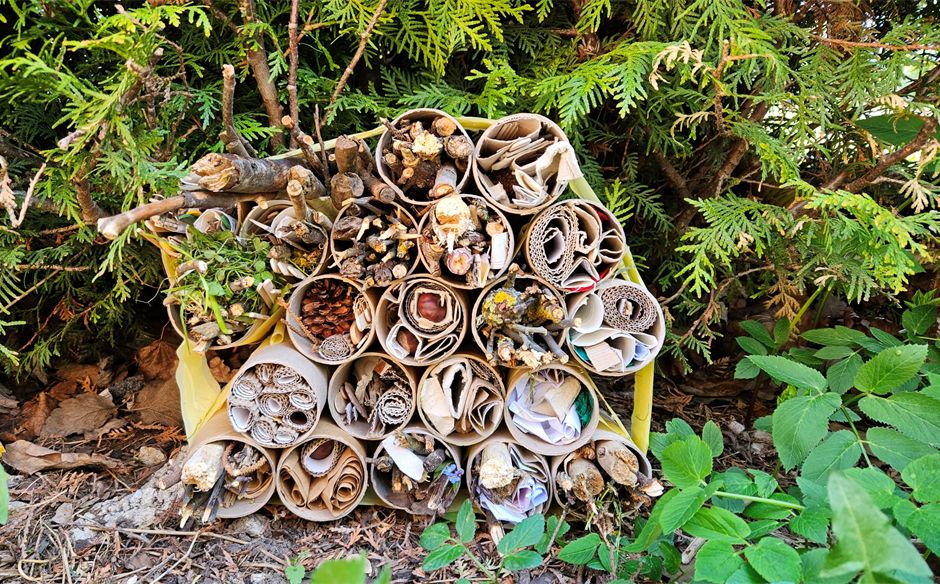
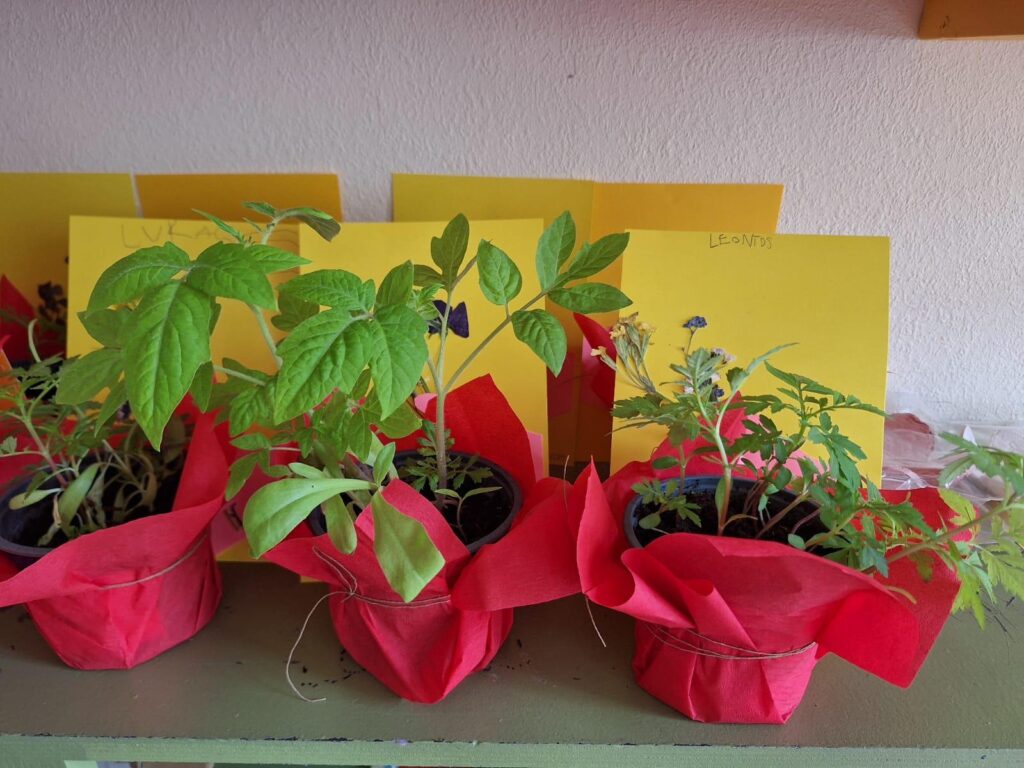
Jolanta Varanaviciene has worked in early childhood education for more than 25 years and has extensive experience in making international projects succeed.
- First you have to establish really good channels of communication and all partners must have a genuine desire to cooperate, to learn, to listen and to share their experience and knowledge. And the leaders must prioritise project tasks in their everyday work and allow staff to take part in partner meetings abroad, she says.
All three institutions agree that this project was very successful. For the small kindergarten in Riga, the recommendation is clear:
- I want to encourage colleagues – across the Nordic and Baltic countries – by saying that if you have ideas, don’t hesitate, just try them. If you get funding, that’s perfect. If not, you’re still a winner because you dared to try. Being part of the application process is really valuable in itself, says Kristine Gravite.
Both Jolanta Varanaviciene and Riina Rosar agree and say in agreement:
- What really mattered was that we got all the teachers involved in the project – and the changes it brought have now become part of everyday life, says Riina Rosar.
* STEAM: Science, Technology, Engineering, Arts, Mathematics
Jolanta Varanaviciene’s recommendations for creating a successful international project:
- Communication within the group is absolutely essential. There must be trust, confidence and a common language.
- The topic must represent a shared challenge for all partners and must be perceived as relevant.
- Management must be involved and supportive – it is not enough to have the engagement of teachers alone.
- The leader must have the backing of their staff.
- Everyone must have a genuine desire to cooperate, learn, listen and share their experiences and knowledge.
Materials created:
- Digital guide for teachers: Environmental education in kindergarten using a STEAM approach (in English)
- Kids go green STEAM (European School Education Platform)
Articles about the Nordplus Junior Aurora Award and nomination
Jury's comment A simple but ambitious project with clear goals and results. The thematic focus is a strength, as is the fact that the project targets young children and introduces STEAM education at an early age. The approach is both current and future-oriented.
- Winner of Nordplus Junior Aurora Award: Kids go Green (received 55 percent of the votes)
- Finalists for: Nordplus Junior Aurora Award – for a brightly shining project
Read the article in Nordic (Danish)
Coordination Institution
- Kaunas Kindergarten Zilvitis, Lithaunia
Partner Institutions
- Kindergarten Ābolu Maiss, Latvia
- Peetri Kindergarten, Estonia
- Kaunas Kindergarten Spindulys, Lithuania
